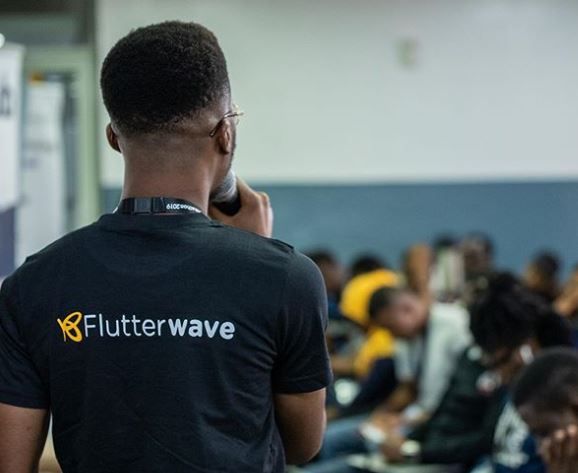
Self-flying drones are helping speed deliveries of COVID-19 vaccines in Ghana
/cdn.vox-cdn.com/uploads/chorus_image/image/68935685/GIzDjxi.0.jpg)
The threat of COVID-19 has prompted many countries to draft new and emerging technologies to fight the pandemic, with the latest example taking flight in Ghana. This month, COVID-19 vaccines were delivered by drone for the first time in the West African nation, allowing the medicine to reach remote areas undeserved by traditional logistics.
Deliveries were made by US firm Zipline, which started couriering blood and drugs in Rwanda in 2016. Since then, the company has expanded its operations to Ghana in 2019 and the US in 2020, delivering medical supplies and PPE in North Carolina last May. Now, Ghana’s government has tapped Zipline to deliver the first vaccines supplied to Africa by the COVAX initiative, a project launched with the help of the World Health Organization (WHO) to ensure that developing countries have access to COVID-19 vaccines.
“The reason Ghana was the first country to receive the COVAX vaccine is that they had the strongest application, and the reason they had the strongest application is they can guarantee the delivery of this vaccine to any health facility or hospital in the country at low cost and very high reliability,” Zipline’s CEO Keller Rinaudo told The Verge.
:no_upscale()/cdn.vox-cdn.com/uploads/chorus_asset/file/22356163/DSCF5031.jpg)
Rinaudo, naturally, credits this to Zipline’s presence in the country. Zipline operates four distribution centers in Ghana, each of which is part drone airport and part medical warehouse, housing a fleet of 30 fixed-wing drones as well as medical supplies. The aircraft fly to their destination autonomously, drop off packages via parachute, and return home. Zipline says its drones can make deliveries to a third of Ghana’s population
Zipline says each distribution center can make deliveries in a 22,500 km2 surrounding area (8,750 mi2). Since 2019, the company has made more than 50,000 deliveries in Ghana, including more than 1 million vaccines, and claims its services can reach 12 million people — just over a third of the country’s total population. Zipline’s drones can deliver to hospitals, but also to temporary mobile clinics that will be used to distribute the COVID-19 vaccine in the country’s more remote areas.
Traditional logistics are still playing a major part in Ghana’s vaccination efforts (the United Parcel Service delivers the COVID-19 vaccines to Zipline’s distribution centers, for example), but Rinaudo says the pandemic has showed the benefits of Zipline’s technology, particularly as the drones require minimal human interaction. “During the pandemic you had a lot of traditional models breaking down,” he says. “And the number of vaccines going through our system went up by a factor of ten during the first two, three weeks of lockdown.”
The COVID-19 vaccines being delivered by Zipline in Ghana are the Oxford-AstraZeneca variety, which, unlike some other alternatives, requires only regular refrigeration at temperatures of 2°C to 8°C to maintain stability. This means Zipline can transport the vaccines using the insulation it already uses for couriering blood and other vaccine types.
:no_upscale()/cdn.vox-cdn.com/uploads/chorus_asset/file/22356186/DSCF4725.jpg)
Rinaudo says the speedy nature of drone delivery helps with the challenges posed by “cold chain logistics.” There’s no need to worry about traffic delays in the sky, he says, and the drones, which travel at 100 km/h, take only 30 to 40 minutes on average to complete each delivery. That means passive rather than active refrigeration is all that’s needed to keep the vaccines at the desired temperature. “Think ice box not refrigerator,” he says.
On arrival at their destination, Rinaudo says the vaccines “go straight into a refrigerator or straight into somebody’s arm.” Zipline received its first batch of vaccines last Tuesday, making 36 deliveries and distributing 4,500 doses in a single day within Ghana’s Ashanti region. By Thursday, the company said it had delivered “almost all of the 11,000 COVAX doses” it had to distribute. It’s a solid start, though it represents only a small proportion of the 600,000 total doses delivered to Ghana in February by COVAX. Over the coming 12 months, though, Zipline says it plans to distribute some 2.5 million doses across Ghana. Drones alone can’t vaccinate the world
Beyond the immediate benefits to recipients, the swift and equitable distribution of vaccines around the world remains an issue of global importance. Writing in The Guardian last month, the president of Rwanda, Paul Kagame, noted that if vaccination programs only cover rich countries, then new mutations of the virus that causes COVID-19 will “continue to emerge at a more rapid pace” in developing nations. “The pandemic will rage on, crippling the global economy,” wrote Kagame. “In this context, the billions of dollars it would cost to distribute vaccines across the developing world is not particularly high, given the return on the investment.”
And while drones by themselves certainly can’t solve all the challenges associated with delivering medical treatment to remote areas, Rinaudo says Zipline’s work shows they can certainly be part of a bigger solution. “The people who typically get screwed when it comes to healthcare are the people who this service can reach,” he says.
Port Harcourt
23 Sentel Plaza East West Road, Rumuoda, Port Harcourt, River State Nigeria
(215) 569-0455
New Jersey
6 Split Rock Drive
Cherry Hill, NJ 4563
(856) 323-9746
Asia Pacific
343 Main St
#232 Singapore, SG 67867
(657) 898-0455
Europe
89 Kingstreet St
#3200 London, PObox 19103
(433) 896-0455

